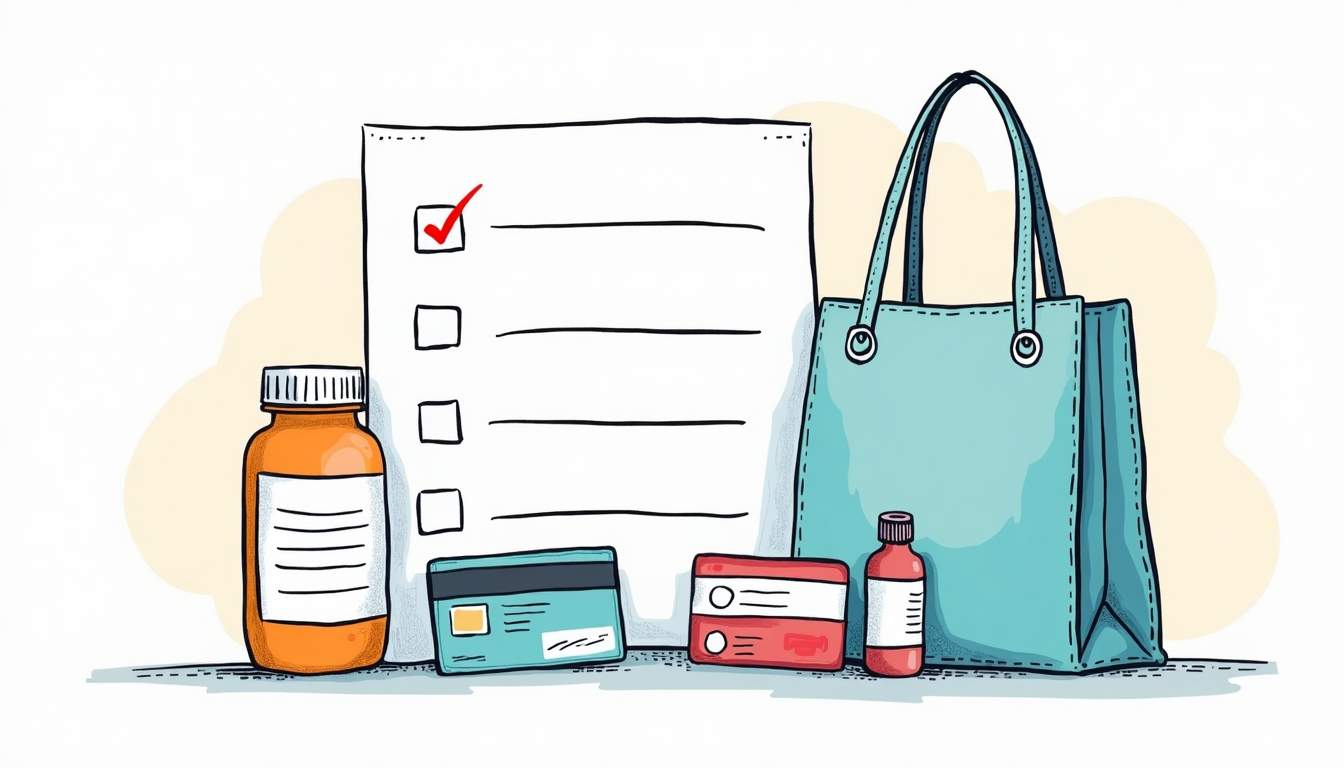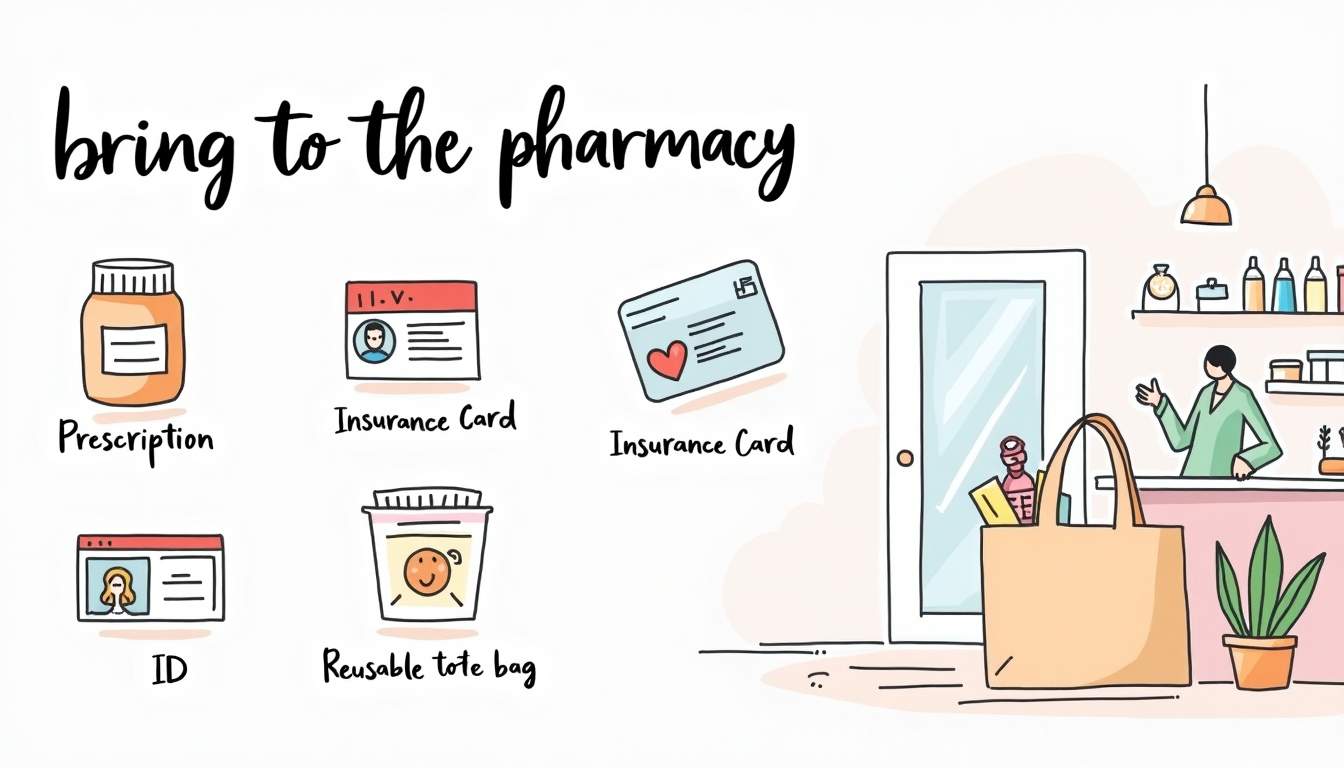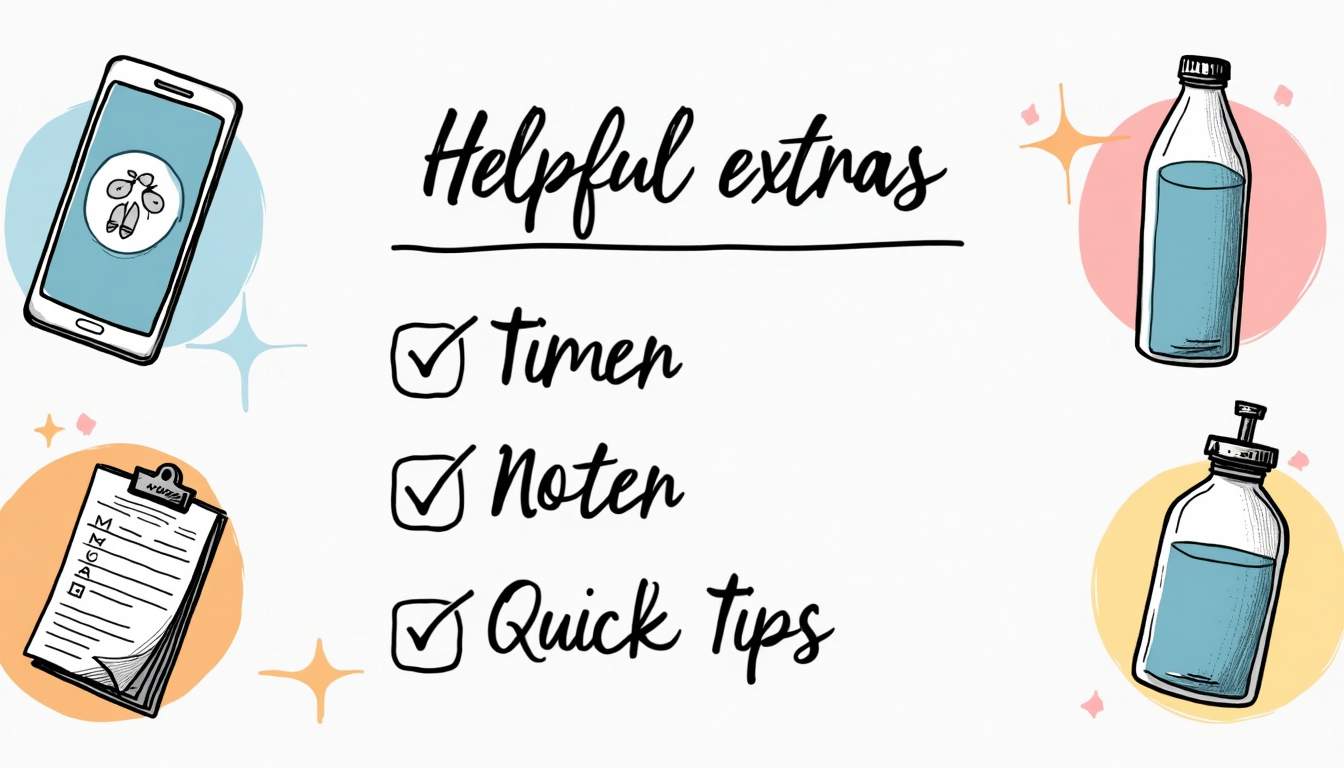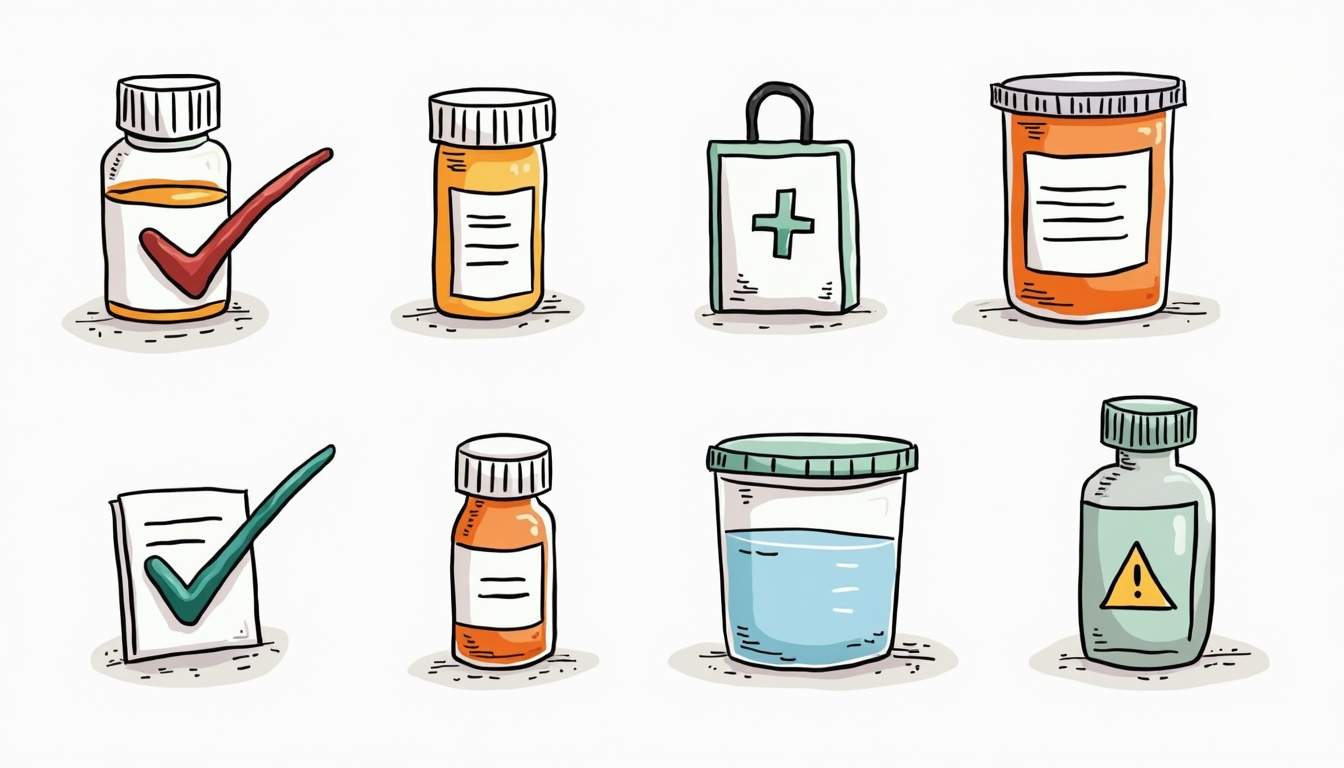
Picture this: you’ve just seen your doctor, and they’ve written you a prescription for medication that could make a big difference in your health. You head to the pharmacy, but once there, you realize you forgot something important. Suddenly, what should be a simple errand turns into a frustrating wait or an extra trip. Knowing exactly what to bring when picking up a prescription can save you time, hassle, and stress.
Essential Items to Bring to the Pharmacy
When you arrive at the pharmacy, having the right items on hand makes the process smooth and efficient. Here’s what you absolutely need to bring:

Your Prescription or Prescription Number
If your doctor gave you a paper prescription, bring it with you. This is the most straightforward way for the pharmacist to fill your medication. In many cases, prescriptions are sent electronically, but sometimes you might receive a printed copy or a prescription number. Having this information ready helps the pharmacist locate your order quickly when you visit Corpus Memorial Pharmacy website.
Without the prescription or the prescription number, the pharmacy can’t legally dispense the medication. If you’re unsure whether your doctor sent it electronically, it’s worth calling ahead or confirming before you visit the pharmacy.
Valid Photo Identification
Pharmacies often require a government-issued photo ID, such as a driver’s license, state ID card, or passport. This is especially important for controlled substances or medications that require strict monitoring.
Even if your medication isn’t a controlled substance, some pharmacies may ask for ID to verify your identity, prevent fraud, and ensure the medication is given to the right person. It’s a good habit to carry your ID when picking up any prescription.
Insurance Card or Payment Method
If you have health insurance that covers prescription medications, bring your insurance card. This allows the pharmacy to process your claim and apply any discounts or copays. Without it, you might have to pay full price or delay pickup until the insurance information is provided.
In case you don’t have insurance, or if the medication isn’t covered, bring a credit or debit card, cash, or any other accepted payment method. Some pharmacies also accept mobile payment apps. Checking your payment options ahead of time can prevent surprises at the counter.
List of Current Medications
It’s also beneficial to bring a list of any current medications you are taking, including over-the-counter drugs and supplements. This information can help the pharmacist check for potential drug interactions and ensure that the new medication is safe to combine with what you are already using. Keeping an updated list can be especially crucial if you are seeing multiple healthcare providers.
In addition, if you have allergies or previous adverse reactions to medications, noting these down can provide the pharmacist with essential information to tailor their advice and recommendations accordingly. It’s always better to be prepared, as this can significantly enhance your safety and the effectiveness of your treatment.
Questions or Concerns
Don’t forget to bring any questions or concerns you may have regarding your medication. Whether it’s about side effects, dosage instructions, or interactions with other treatments, having these inquiries ready can facilitate a productive conversation with the pharmacist. They are a valuable resource and can provide insights that may not be covered during your doctor’s visit.
Consider jotting down your questions beforehand to ensure you don’t forget anything important during your visit. This proactive approach not only helps you understand your treatment better but also fosters a collaborative relationship with your healthcare providers, ensuring that you are well-informed and comfortable with your medication regimen.
Helpful Extras That Can Speed Up the Process
Beyond the essentials, a few additional items or pieces of information can make your pharmacy visit even smoother.

List of Current Medications
Bringing a list of all the medications you’re currently taking—prescription, over-the-counter, vitamins, and supplements—can be invaluable. Pharmacists use this information to check for potential drug interactions or allergies.
This list should include the medication names, dosages, and how often you take them. If you don’t have a written list, you can also use your smartphone’s notes app or a medication management app. Sharing this information helps ensure your safety and optimizes your treatment. Additionally, consider noting any past medications that you have stopped taking, as this can provide further context for your pharmacist, helping them to understand your medical history better and make more informed recommendations.
Contact Information for Your Doctor
Sometimes, the pharmacist may need to clarify details about your prescription with your doctor. Having your doctor’s office phone number or fax number handy can speed up communication if questions arise.
Pharmacies often handle this behind the scenes, but being prepared can reduce delays, especially if your prescription needs adjustments or prior authorization. It can also be beneficial to have the name of your primary care physician or the specialist who prescribed your medication, as this can help the pharmacist direct their inquiries more efficiently. In some cases, a quick call can resolve issues that might otherwise lead to a frustrating wait.
Questions or Concerns Written Down
It’s easy to forget important questions when you’re at the pharmacy counter. Writing down any concerns or questions about your medication—such as side effects, how to take it, or storage instructions—can help you get the answers you need before you leave.
Pharmacists are a great resource, and having your questions ready ensures you don’t miss out on critical information. Furthermore, consider asking about any alternatives to your prescribed medication, especially if you have concerns about cost or side effects. This proactive approach not only empowers you as a patient but also fosters a collaborative relationship with your pharmacist, who can provide tailored advice based on your specific health needs and preferences.
Special Considerations for Controlled Substances
Medications classified as controlled substances, like certain painkillers, stimulants, or anti-anxiety drugs, come with extra rules. Understanding these can prevent surprises when picking up your prescription.

Strict Identification Requirements
Pharmacies require a valid photo ID to dispense controlled substances. Some may also ask for a signature or additional verification. These measures help prevent misuse and ensure the medication reaches the right person.
Limited Refills and Pickup Windows
Controlled substances often come with limits on how many refills you can get and how soon you can pick up a refill after the previous one. If you try to fill a prescription too early, the pharmacy may refuse to dispense it.
Make sure to ask your doctor or pharmacist about these limits so you can plan accordingly and avoid running out of medication.
Insurance and Prior Authorization
Some insurance plans require prior authorization for controlled substances, meaning your doctor must get approval before the pharmacy can fill your prescription. This can add extra steps and time, so it’s helpful to check with your doctor or insurance provider ahead of time.
Tips for First-Time or New Pharmacy Visits
If you’re visiting a pharmacy for the first time or switching to a new one, there are a few additional things to keep in mind.
Bring Your Medication History
Pharmacists like to have a complete picture of your medication history. If you’re switching pharmacies, bring a list of your current medications or ask your previous pharmacy to send your records over.
This helps avoid duplicate medications, dangerous interactions, and ensures continuity of care.
Set Up a Pharmacy Account
Many pharmacies offer accounts that store your information, insurance details, and prescription history. Setting up an account can speed up future pickups and make it easier to manage refills online or through an app.
Ask About Medication Synchronization
If you take multiple medications, ask if the pharmacy offers synchronization services. This means all your prescriptions can be refilled on the same day each month, reducing the number of trips you need to make.
What to Do If You Forget Something
Forgetting a key item when picking up a prescription happens to everyone. Here’s how to handle it without too much hassle.
If You Forget Your ID
Without valid identification, you may not be able to pick up certain medications, especially controlled substances. If this happens, ask the pharmacist if there are alternative forms of ID they accept or if someone else can pick up the medication for you with proper authorization.
If You Don’t Have Your Insurance Card
Many pharmacies can look up your insurance details using your name and date of birth. It’s worth asking if they can verify your coverage without the physical card. Otherwise, be prepared to pay out of pocket and submit a claim to your insurer later.
If You Forgot Your Prescription
If your doctor sent the prescription electronically, the pharmacy can usually retrieve it. If not, you may need to contact your doctor’s office to resend it or bring a new paper copy.
Final Thoughts
Picking up a prescription should be a straightforward task, but it can quickly become complicated without the right preparation. Bringing your prescription or prescription number, valid ID, insurance information, and payment method covers the basics. Adding a list of current medications and any questions you have can make the experience even better.
Remember, pharmacists are there to help. Don’t hesitate to ask them anything about your medication or the pickup process. Being prepared and informed ensures you get your medication quickly and safely, so you can focus on feeling better.



